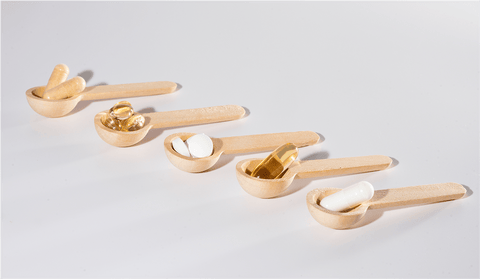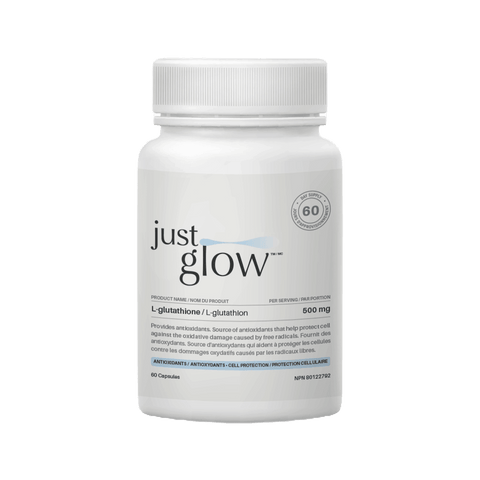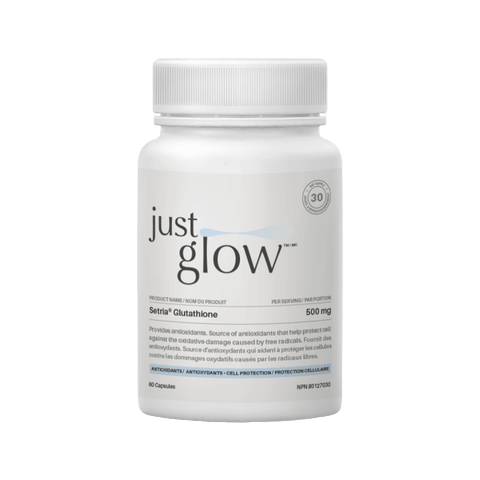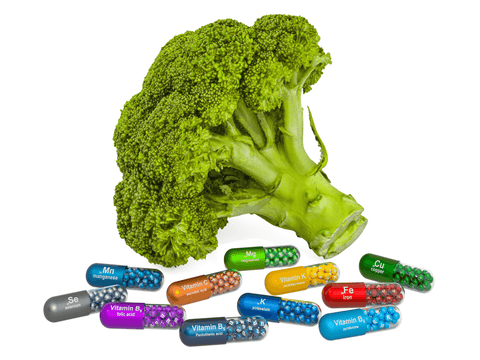Glutathione Supplement Benefits: Why This Antioxidant Is Taking the Spotlight in Wellness

Key Takeaways
-
Glutathione is an important antioxidant produced in the body.
-
It supports immune function, detoxification, and cellular repair.
-
Glutathione supplements may help boost glutathione levels in the body.
-
Available in oral, sublingual, and intravenous forms.
-
Dosage and formulation impact efficacy.
What Is Glutathione?
Glutathione is a powerful antioxidant that’s made of three amino acids: glutamate, cysteine, and glycine. It plays a role in many critical biological processes, including neutralizing free radicals, supporting detoxification, and maintaining immune function. Because of its broad impact on health, glutathione is often referred to as the "master antioxidant."
The Science Behind Glutathione Benefits
Glutathione works at the cellular level to repair cells, reduce oxidative stress, and support the body’s natural detox pathways. Research suggests that glutathione may help protect against liver disease, improve insulin sensitivity, and enhance immune response. One open-label study found that oral glutathione supplementation twice a day helped raise glutathione levels in the body significantly.
Glutathione is an antioxidant produced in the liver, and its levels can decline due to aging, poor nutrition, chronic disease, or environmental toxins. When the body’s glutathione levels are low, supplementation may be beneficial.
Why Take a Glutathione Supplement?
Supplementation with glutathione can help increase glutathione levels and support the body’s antioxidant defenses. For individuals experiencing low glutathione levels due to stress, illness, or aging, glutathione supplements may support the body’s ability to combat oxidative stress and inflammation.
Oral glutathione, sublingual glutathione, and glutathione capsules are among the most popular options. Sublingual forms are designed to dissolve under the tongue, potentially enhancing absorption.
Choosing the Right Glutathione Supplement
Not all supplements are created equal. It's important to choose a product with proven efficacy and transparent sourcing. When selecting a glutathione supplement, consider the following:
-
Form: capsule, sublingual, or liposomal
-
Ingredients: look for reduced glutathione and supporting cofactors like NAC
-
Purity and testing: choose brands that follow strict sourcing and third-party testing
Proper Dosage and Safety Considerations
Typical dosages of glutathione range from 250mg to 1000mg per day, depending on individual needs and health goals. It’s a good idea to consult a healthcare professional before starting any new supplement, especially if you’re managing chronic conditions.
Glutathione is generally considered safe when taken at recommended dosages. However, potential side effects may include abdominal cramps, bloating, or allergic reactions. If you experience adverse effects, you may need to stop taking the supplement and seek medical advice.
How Glutathione Works with Other Nutrients
N-acetylcysteine (NAC), glutamine, and glycine are often included in glutathione-boosting formulations because they help the body produce more glutathione naturally. These amino acids work synergistically to support enzyme activity and enhance the body’s detox pathways.
Foods rich in sulfur-containing amino acids, such as garlic and broccoli, may also help boost glutathione levels. Some individuals use NAC as a standalone supplement to support glutathione production.
Who May Benefit Most from Glutathione Supplementation?
People with oxidative stress, liver disease, cystic fibrosis, or those undergoing chemotherapy may benefit from glutathione supplements. Others may use it to support skin health, reduce muscle fatigue, or promote general wellness.
If you have a condition that affects your glutathione levels, taking supplements may help restore balance and support recovery. However, more peer-reviewed research is needed to confirm long-term benefits in some areas.
FAQs
Q: What is glutathione and what does it do? A: Glutathione is a powerful antioxidant that helps protect the body’s cells from oxidative stress and supports detoxification and immune function.
Q: How should I take glutathione? A: Oral glutathione, sublingual glutathione, or capsules are common forms. Always follow the dosage instructions on the label or consult a healthcare professional.
Q: Can I take glutathione every day? A: Yes, many people take glutathione daily. Dosage may vary depending on your health needs. It’s best to consult a healthcare professional.
Q: Are there any side effects? A: Some people may experience digestive discomfort or allergic reactions. If this happens, stop taking the supplement and talk to your doctor.
Q: Is glutathione regulated by the FDA? A: Dietary supplements are not regulated by the FDA the same way medications are. Choose reputable brands that prioritize safety and transparency.
Conclusion
Glutathione is a powerful antioxidant that helps protect the body’s cells, support liver detoxification, and boost immune function. As research continues to highlight the benefits of glutathione, it’s no surprise that this important antioxidant is gaining widespread attention. If you're considering supplementation, look for trusted brands like Just Glow to ensure purity, potency, and safety.
For more information and premium-quality glutathione supplements, visit Just Glow.
Summary
Glutathione is a powerful antioxidant that plays a vital role in maintaining cellular health, supporting the immune system, and protecting the liver. As more people look to enhance their well-being with high-quality supplements, glutathione is emerging as a popular and effective option.






